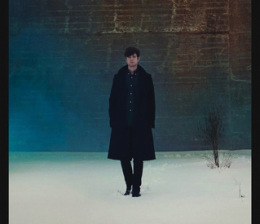
SUBTLE CONFIDENCE Blake emphasizes his musical roots in this album.
4/5 stars
James Blake’s 2011 eponymous album debut, despite frequently being characterized as dubstep, seemed uncomfortable with the label. British dubstep differs from its American counterpart by emphasizing punishingly deep bass and arrhythmic beats rather than extreme, power-drill-sounding midrange; watch any club scene in “Skins” for an example of the former. And although Blake got the deep bass down pat — I wouldn’t recommend playing the chorus of “Limit to Your Love” anywhere near a fault line — the hesitations seemed indiscriminate and clashed with the lush synthesizers and angelic vocals that were the template of his work.
A jazz pianist by trade and a singer-songwriter at heart, Blake brings these talents to the forefront of his newest album, Overgrown, and the result is a much more confident record. Despite his more traditional background, Blake is undeniably a fantastic electronic music producer, one who can manipulate space, reverb and low end to create a dreamlike yet ominous atmosphere seemingly at will. His problems tend to mostly lie in the songwriting, making his albums and EPs seem like a collection of fully produced — but not fully written — sketches of songs. Blake has sometimes overcome this tendency by perfecting every other aspect of a song, an example of this being the first single, “Retrograde.”
Overgrown largely avoids falling prey to this without sacrificing the intimacy of his brand of electronic R&B. “It’s your image burned into my mind, and again I find that it’s worth the climb,” Blake croons in the album’s closer, “Our Love Comes Back,” over a muted piano accompaniment. But he knows the sensual, robotically hedonistic power that the bass can hold, and the repeating line that follows, “Our love comes back in the middle of the night,” is accompanied — and, in a way, corroborated — by deep bass and rhythmic white noise. The songs in Overgrown never adhere to the verse-chorus-verse format, but their overall construction is more deliberate, even if this may seem unclear on first listen. From the disco-like breakdown of “I Am Sold” to the false ending of “Voyeur,” the album’s songs no longer feel like merely vehicles for Blake’s experiments with vocal harmonies and synthesizer tones.
Overgrown’s subtlety, in fact, is perhaps its greatest strength. The density of the album’s sonic space is formed by the fading and trailing off of Blake’s falsetto and piano, not their constant presence. His arrangements have always complemented his vocal style, but Overgrown increases their complexity without making them seem, well, overgrown. “Life Round Here,” an anomalous track made up ofarpeggiated mono synths instead of the washed-up keyboard sounds found everywhere else, still retains the hazy, confessional sound of the rest of the album; he even makes a siren sound subtle.
Although the collaboration with noted producer Brian Eno, “Digital Lions,” is a highlight, partnering with the venerable RZA on “Take a Fall for Me” was a mistake by both parties. Prince Rakeem raps awkwardly about love and loss while referencing Guinness and fish and chips over the album’s least interesting soundscape. Perhaps a collaboration in the production booth — RZA was always a much better producer than rapper, and his focused yet aggressively unhinged vocal style (his greatest strength) he used on the Wu Tang Clan albums left him long ago — would have yielded a result on the level of “Lions.”
It’s rare for an artist to locate his faults so pointedly and to correct them on his next album. But Blake is one of the rare ones, someone who can move farther and farther away from pure genre classification into something that is truly his own.








